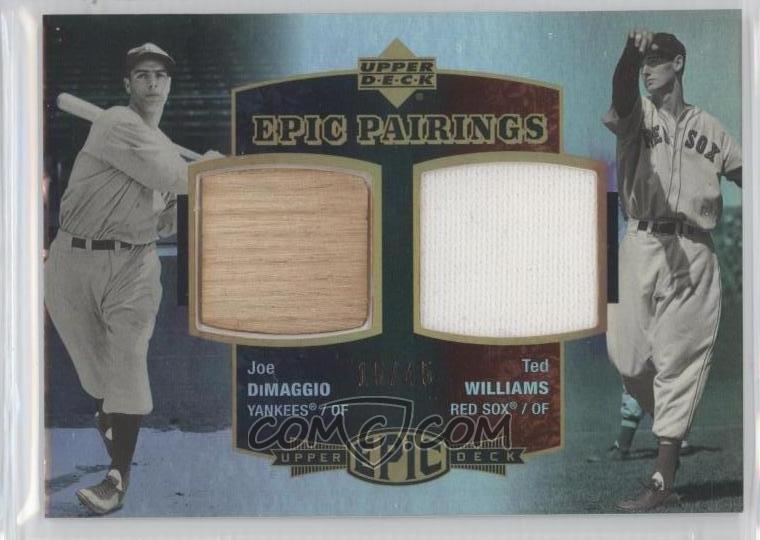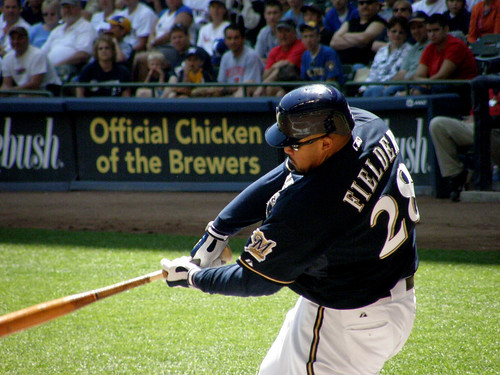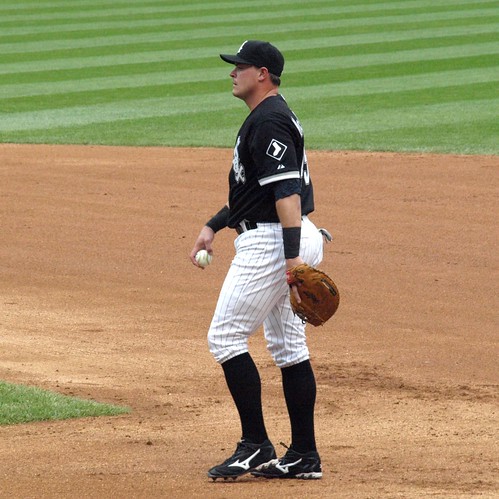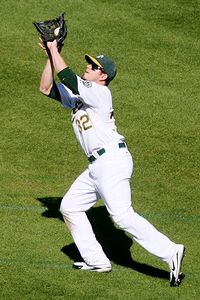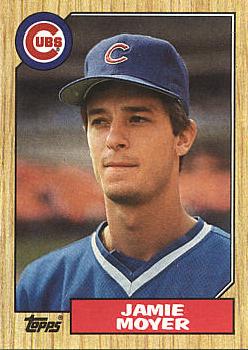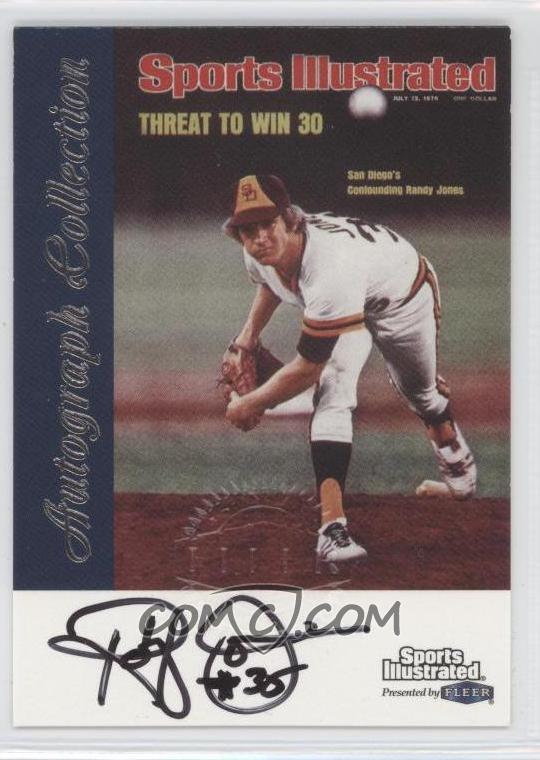 By Mark Smith
By Mark Smith
If you didn’t see all the hubbub on Twitter last night concerning Bill,
take a look
here
to get a look at a recap to see what got it started. Basically, Keith Law and Bill
called out Randy Miller, who no longer covers baseball, for submitting a blank
ballot as his vote for the Hall of Fame, and after several inane excuses,
Miller called Bill “Saber boy”. As you might imagine, the
baseball-Twitter-geek-blogging part of the Twitterosphere went into a category
5 hurricane of asking Bill to change his handle (
I think I was first, damn it), figuring out what Bill’s super powers
would be, trying to make the best photoshopped avatar, and the usual blind
rage. After what seemed like an hour, the storm finally waned, and Twitter went
back to trying to figure out how many ways it could make the joke that they
could predict that one SEC team would lose the National Championship game last
night. All in all, what began as
a
bad day ended up pretty good for our new super hero.
What we have to do now is figure out the story from here. What does
Saber Boy fight? What powers does he have? Where does he live? And most
importantly, who are the villains?
Setting: Twitter, Somewhere
in Minnesota, around now.
Lair/Hideout: Bill’s Mom’s
Basement (obvs)
Disguise: Avatar
and Twitter Handle (@Saber_Boy)
Fights: Idiocy, Intellectual
Bankruptcy, Logical Disconnects, Plagiarists, My Twitter Handle, Dolts, Bumbling
Ineptitude, Dumbassery
Super Powers: Intertubes-Piercing
Logic, Sharp Wit, Hashtags, Papal Infallibility, Use of Spreadsheets and Facts
Sidekicks: The Common Man,
JL Beane
Super Villains: (villain: crime;
special powers/moves/weapons)
- Randy Miller: Sinister laziness; throws blank ballots in a
Gambit-like fashion
- John Heyman: Rumor-mongering and analytical ineptitude; creates
look-alikes called “Mystery Teams” (find Scott Boras and you’ll find the real
Heyman)
- Dr. Strangeglove: Using errors and fielding percentage; throws
exploding baseballs inaccurately (mostly collateral damage)
- Winning Pitcher: Using win-loss records; frisbeeing old musical
records (frequent elbow injuries keep him out of commission)
- Life-Saver: Acts like he’s about to save you before blowing you up;
bombs (surprisingly lethal to intellect)
- Blogger Chass: Mind-blurrying nostalgia; clichés, anachronisms,
stories whose truth has yet to be verified (note: can turn a group of old
people against you in a hurry)
- McCarver: Too many to list; tools of ignorance
- Braves_And_Pie: betrayal caused by a few too many jabs at his Twitter
handle; subtweets, blog-jeopardizing posts like this one (mostly harmless)
- Victor Van Benschoten: Prospect over-hype; insane trade ideas,
erroneous visions of the future (frequently fails of his own accord, but you’ll
spend a lot of time and energy worrying about him anyway)
- SABRtooth: Fredi Gonzalez in disguise promoting false sabermetrics to
confuse crowd into fighting you; sacrifice bunts and intentional walks (brutal
strength and can collapse sturdy-looking structures)
- Ray Kingpin: Over-emphasis on relievers; bad contracts that leave you
in a bind (he’s fat and can’t hit the broad-side of a barn, but he just won’t
go away)
- Megatron (Calvin Johnson): Distracting Twitter from baseball;
hair-raising catches, stiff arms (could probably kill you regardless of what
you do; try to avoid)
- John Lackey: Begin hideous; horrible looks (takes advantage of you
looking away to stab you in the back)
- Mystique: Changes skin to blend into scenery or into other person;
narratives (hard to see, but use of Intertubes-Piercing Logic should do the
trick)
Obviously, this is just a start, and any suggestions in the comments
would be welcome. The objective is to get someone to actually write a comic
book or strip involving our hero triumphing over evil. It's already
a shirt!





